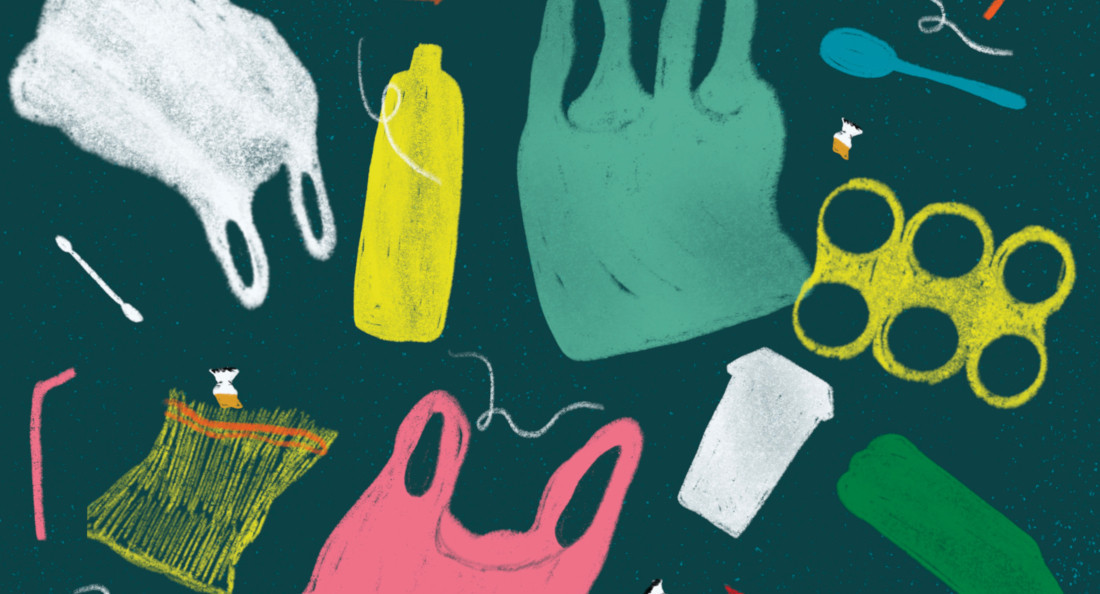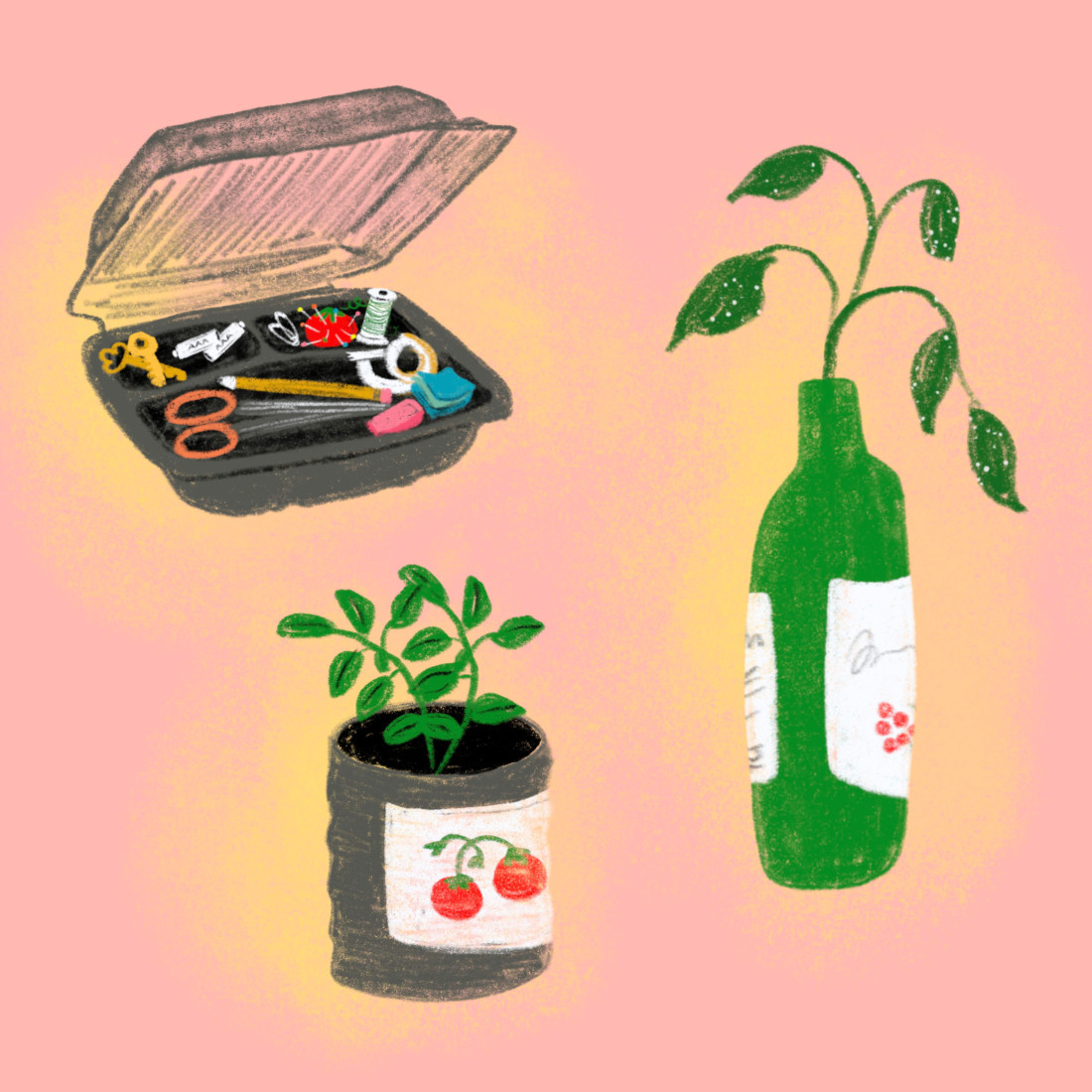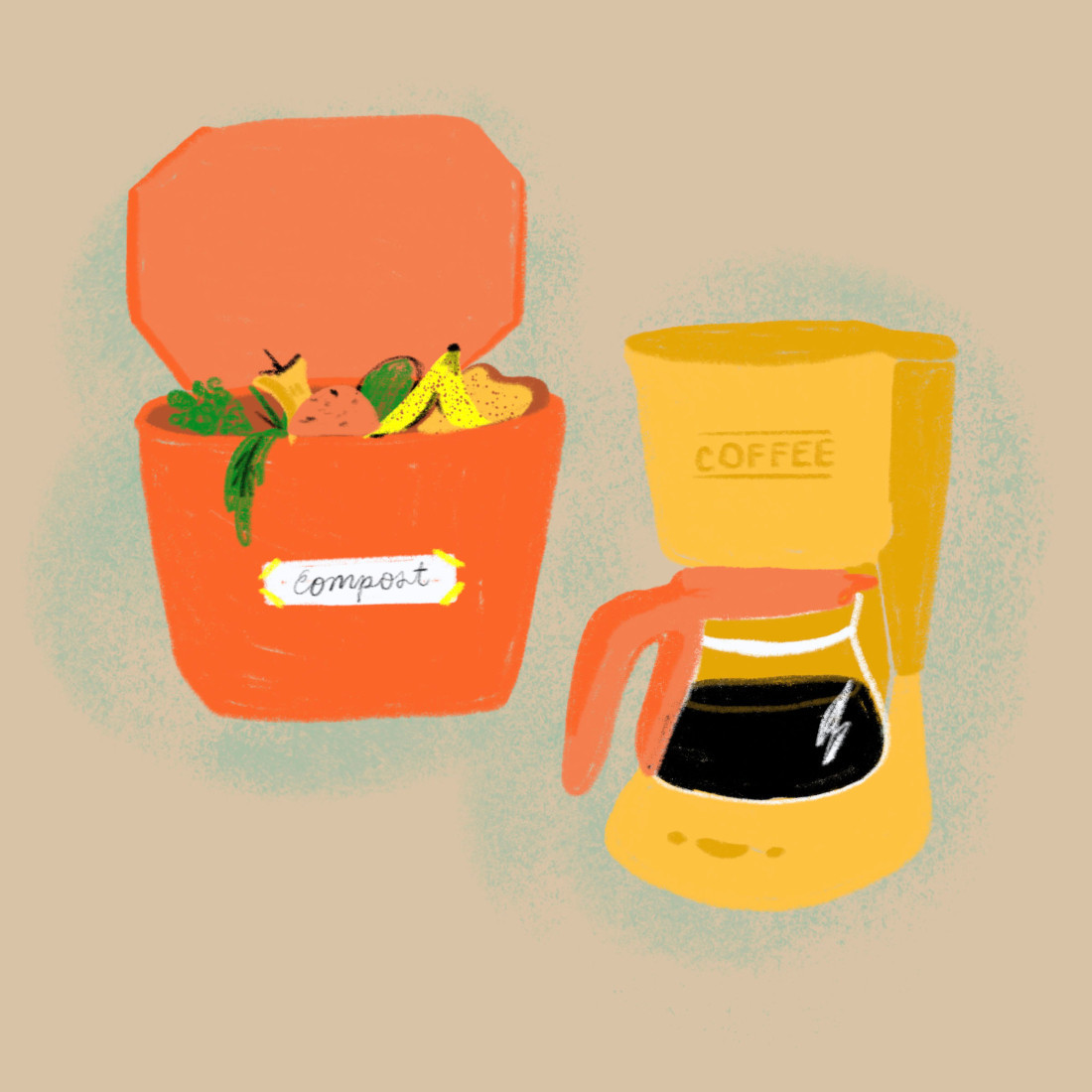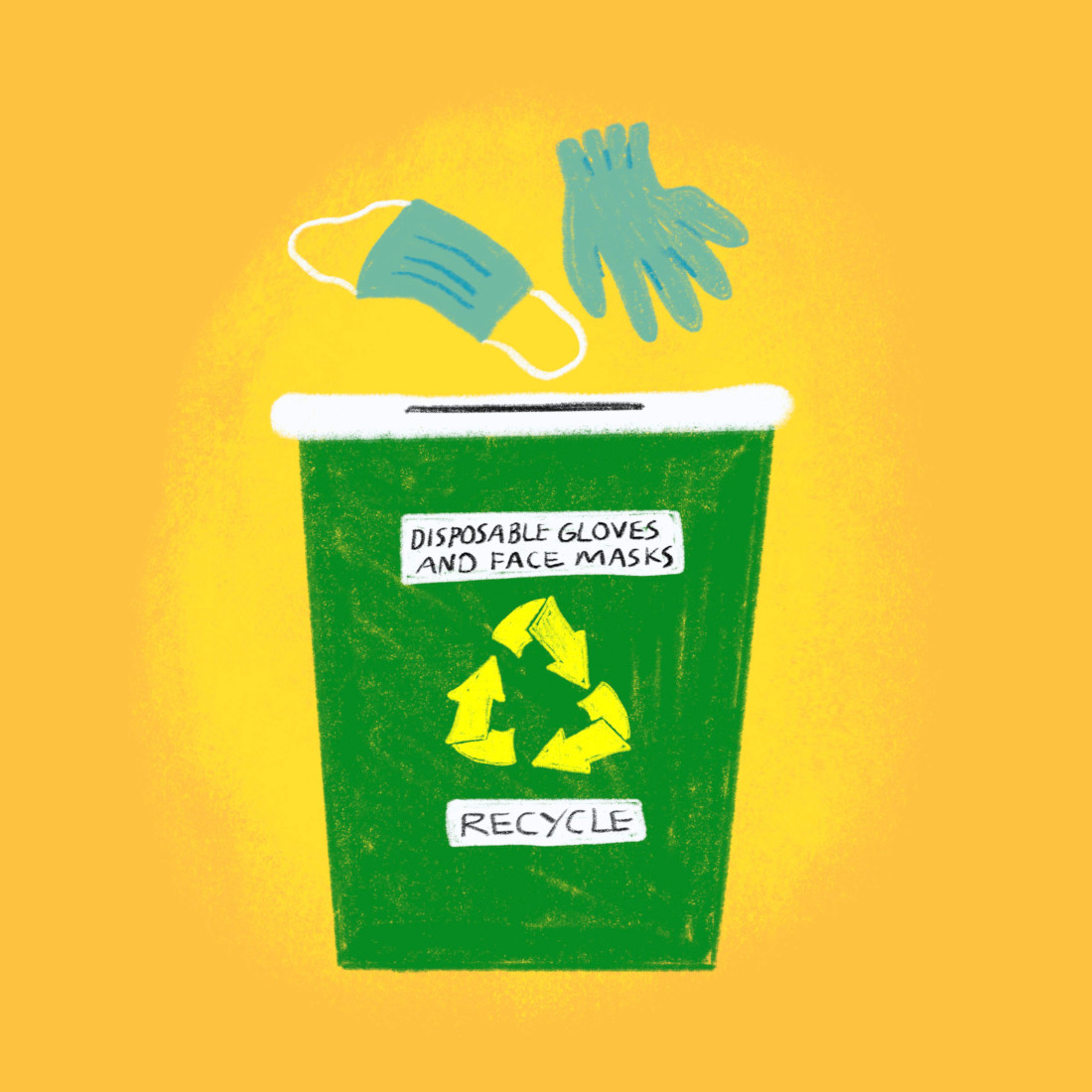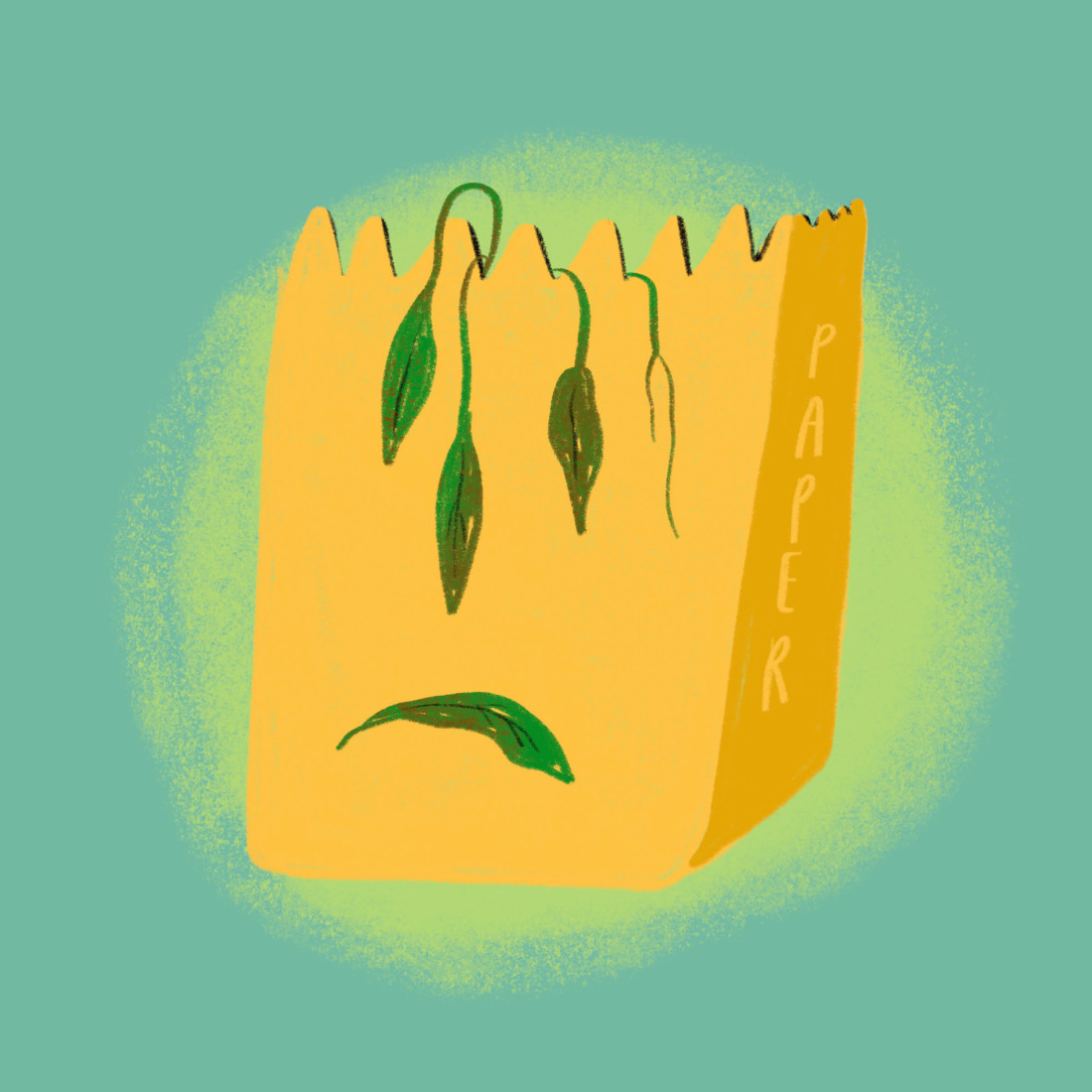Waste not, want better
The legislative logic behind single-use plastic bans
In 2019, the Riel Community Committee asked the Standing Policy Committee on Water and Waste, Riverbank Management and the Environment to have the Winnipeg Public Service look into enacting a ban on single-use plastic bottles, straws and stir sticks at City facilities, parks and events. Three years later, the City of Winnipeg is assessing a federal ban on single-use plastics, reviewing alternatives and continuing to report back to the committee on a regular basis.
This process has been slow, despite the fact that when it comes to partial single-use plastic bans, the writing has been on the wall for a while.
Looming legislation
Alan Diduck, professor and department chair in the University of Winnipeg Department of Environmental Studies and Sciences, recalls working in Manali, India in 1998, three years after the town introduced a ban on plastic bags. Diduck notes that many jurisdictions, from municipalities to whole countries, have already introduced some degree of single-use plastic ban by now, often due to the impact plastic bags have on infrastructure like greywater systems.
“But sometimes there’s political pushback,” he says. “The issue can be highly political, and the decisions can be made on the political winds of the day and how they blow.” He mentions the City of Victoria’s attempt to ban single-use plastic bags, which was challenged by a lawsuit by the Canadian Plastic Bag Association. The appeals court initially favoured the municipality but later overturned the ban in favour of industry lobbyists, which was then overturned again in favour of the ban in 2020.
Many single-use plastic-reduction initiatives were paused in the early days of the COVID-19 pandemic, especially before it was confirmed that the virus is not transmitted by surface fomites. This uncertainty was capitalized upon by plastic manufacturers.
Now, in 2022, a partial ban in Canada seems inevitable.
On Dec. 21, 2021, the Government of Canada announced that a ban on single-use plastic – including checkout bags, cutlery, foodservice ware made from or containing problematic plastics, ring carriers, stir sticks and straws – proposed in 2020 and to be enforced through the Canadian Environmental Protection Act, will in fact be going into effect as early as late 2022.
In the two years since the proposition, provincial, territorial and municipal governments and businesses have been slowly examining their own policies to bring themselves in line with the imminent legislation. However, with a general lack of clear direction from the federal government, the effectiveness of these anticipatory actions has been a little uncertain.
Colleen Ans, Living Green, Living Well program coordinator
What constitutes single-use?
Defining single-use plastic in a legislatively useful way can be complicated, as many products that can be used multiple times or recycled are produced in such abundance and repurchased at such a high rate that they are often used once and then disposed of.
Plastic water bottles are one example of this: a person can reuse and repurpose a plastic water bottle, but many don’t. The same is true for plastic cutlery, produce clamshells, plastic bags and reusable packaging. The most accessible option to purchase many products requires also repurchasing the packaging, and while some of that packaging might be reused by consumers, much of it is recycled or thrown away.
Which items are specifically targeted by single-use plastic bans depends a lot on what waste is most common and what alternatives exist. Colleen Ans, the coordinator of the Living Green, Living Well program at Green Action Centre, notes that the six items selected for the federal ban were determined by evaluating which products were most commonly found in ocean pollution and which products have viable alternatives that they could see businesses swapping to. Cigarette butts, for example, are the most abundant pollutant in the world, but until there is a market-viable non-plastic alternative for their filters, they probably will not be the subject of plastic bans, according to Ans.
Plastic subjectivities: ableism and the banning of plastic straws
When Seattle banned single-use plastic straws in 2018, there was a lot of discourse about introducing similar bans in other jurisdictions and a large shift toward purchasing reusable straws. Some people with disabilities, for whom single-use plastic straws are often the safest and most usable option for liquid consumption, pointed out that these campaigns relied on ableist assumptions about straw use and what constitutes a viable alternative product. They argued that bans would ultimately limit the ability of many people with disabilities to participate in society.
As governments move towards legislation further restricting single-use plastic, it is important that their approach reflects the nuanced relationships different communities have with these products and barriers to the current alternatives, from economic barriers to specific-use cases where a feasible alternative does not currently exist.
Many grocery stores have already switched from plastic bags to paper, but Joelle Robinson, chairperson of the Manitoba League of Persons with Disabilities, points out that, in many cases, those bags don’t have handles, which makes them impractical for people using scooters or wheelchairs.
“Bags need handles at minimum if you’re using a scooter or wheelchair,“ she says. “The sizing of reusable bags is very large, so again if you’re using a wheelchair or scooter, those bags are so big that they’re too long for the handlebars and drag on the floor.”
Robinson stresses that people with disabilities are not monoliths and, like able-bodied people, will adapt when single-use plastic restrictions are adopted.
“You might carry a straw with you if you need one, you might ask a server for a straw, because generally they will have paper straws,” she says. “There are workarounds, and people with disabilities are some of the most creative problem-solvers in the world, because every day we are presented with challenges.”
However, given issues of affordability and access to suitable alternatives, Robinson says decision-makers should include people with a variety of disabilities and people from a wide variety of communities in all decision-making if they want to avoid proposing rudimentary solutions to complex problems.
“It’s not just items that are specifically related to persons with disabilities. It is not just worrying about the built environment or braille or font size,” she says.
“Have people with physical disabilities on committees when you’re making changes to the built environment, include people with disabilities in everything when you’re making changes to legislation.”
Recycling revenue
What Canadian legislators consider to be a viable alternative is also determined by which are market-viable rather than those that are able to totally replicate the utilities of the targeted object.
“In the society that we live in, it’s also about making a profit, so that business is just something that we just have decided to live with and need to work around,” Ans says.
“Better disposables is not creating a solution. It’s just lessening some of the more harmful impacts,” she says. “There is still a carbon footprint behind paper bags, and even if we can dispose of them better, we are still disposing of them. We need alternatives that reduce waste overall, not just plastic waste.”
Ans says that while Winnipeg has a high recycling rate, the process is energy-intensive and leaves out many materials. She says it’s important to reuse when possible and introduce legislation that limits the distribution of items that cannot be disposed of in an environmentally responsible way.
She notes that recycling was invented by plastic companies to avoid blowback for ecological damage, but that it is generally better to purchase something recycled than something new.
However, since recycling is contracted to private companies, what is and isn’t recycled is determined by the value of materials. Some plastics are frequently sent to landfills by recycling companies because the recycled product would be of a very low quality, so the ecological value of diverting it is not financially worth it.
In this regard, single-use plastic bans are “a good message to show, as a country, that waste reduction is something we’re focusing on,” Ans says. “It takes the responsibility out of the consumer’s hands and puts them into the corporations. It’s creating a system that no longer allows (these single-use plastic products), so we don’t have to find another use for them or go out of our way to avoid them. Alternatives will now be provided to us. It’s a great first step.”
What communities and non-producing businesses can do
Ans also highlights the need to divest from industries that produce single-use plastics and invest in companies that prioritize social and environmental responsibilities, and the need for better awareness and public education regarding how to dispose of different objects. This is especially important with products that consumers are new to dealing with, like COVID-19 PPE, which can be recycled at several Terracycle boxes around Manitoba.
Businesses that don’t manufacture plastic also have a responsibility to reduce plastic usage in their workplace. As the coordinator of the Living Green, Living Well program, which provides consultation services for businesses, schools and individuals to find greener alternatives, Ans suggests that businesses avoid purchasing plastic-bottled water (tap water is best, jugged water is preferable to bottled), have a coffee maker and compost bin in their office and require employees to manage their own non-recyclable, non-compostable garbage rather than providing office garbage removal.
Sherry Sobey says that when it comes to businesses, “there are options available now, and unfortunately some of them are a bit more costly, but when you weigh that, I just think it’s a responsibility that we have as business owners with what we’re putting out.”
Sobey is the founder and owner of Generation Green, a store that prioritizes green products and features a refill shop where customers can bring in refillable containers to purchase products, and the Acorn Cafe, which uses exclusively compostable and reusable items. Even when people have been second-guessing reusables during the pandemic, she says there are options to reduce plastic and potential disease transmission.
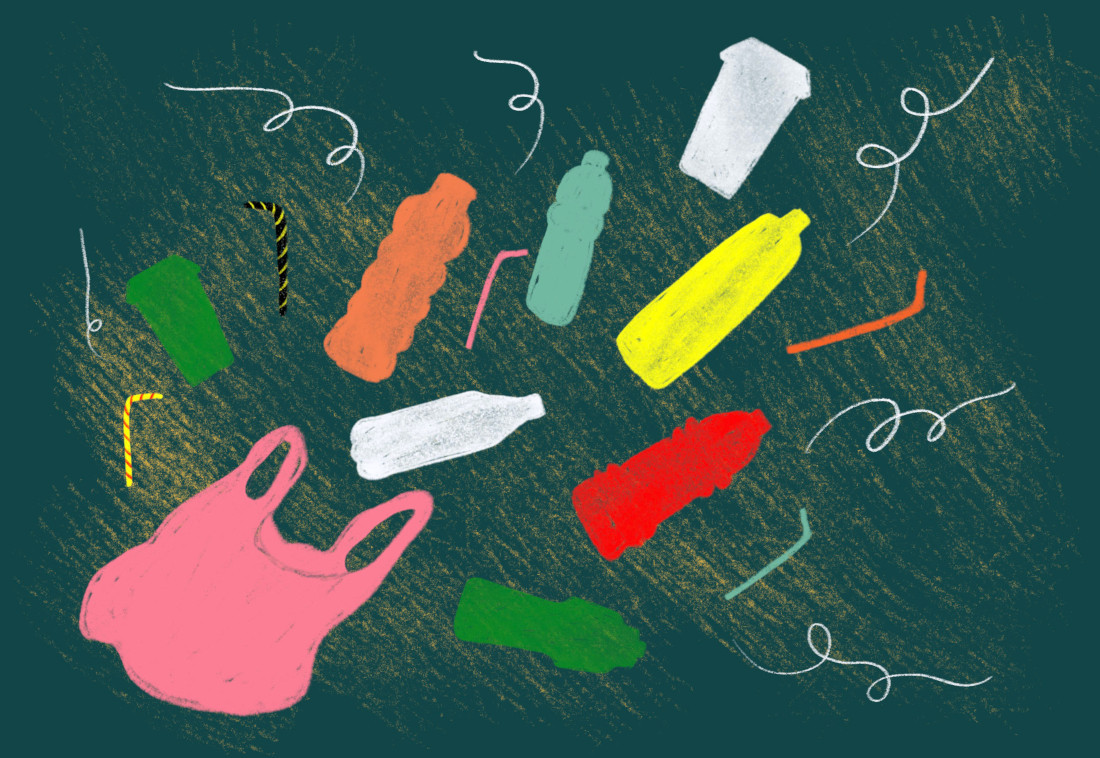
Taking responsibility
Diduck says he sees all levels of government displaying interest in developing single-use plastic bans. For such legislation to be effective, it needs to impact “manufacturing, import and sales, perhaps including social marketing guidance regarding alternatives,” meaning effective communication about what alternatives can be used and how to use them safely, as well as “incentives for development of alternatives, giving consideration for the full impacts of those alternatives.”
Diduck cites a University of Arizona study that found reusable shopping bags to be a hotspot for E.coli growth as one example of an alternative that requires some additional study and public education to be an effective alternative.
“When you issue a ban on single-use plastics, people look for alternatives and manufacture them and sell them, and consumers will buy them and use them,” he says, “so consideration for the impact of those alternatives need to be considered, whether that’s climate change implications or production of alternatives or the pollution implications.”
There are Terracycle PPE recycling dropoff boxes at Red River College, the University of Manitoba Fort Garry and Bannatyne campuses, Assiniboine Park Zoo, Birds Hill Provincial Park, Spruce Woods Provincial Park, Winnipeg Beach Provincial Park, Clearwater Provincial Park, Pinawa Dam Provincial Heritage Park, St. Malo Provincial Park, Grand Beach town site and campground office, Falcon Beach town site, Falcon Lake Beach campground office and West Hawk Lake campground office.
Published in Volume 76, Number 15 of The Uniter (January 27, 2022)

